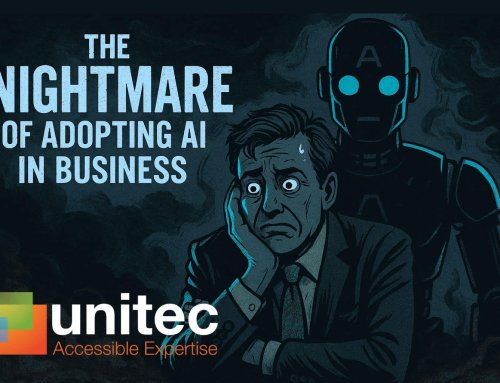Cyber Security Law Will Change How Irish Businesses Operate
The National Cyber Security Bill 2024 will soon become law, bringing tougher rules, stricter reporting, and significant penalties. Ian Power of Unitec IT Services explains what it means for local businesses and how to prepare.
The National Cyber Security Bill 2024 – What Waterford Businesses Need to Know
A major shift in Ireland’s approach to cyber security is on the way, and it’s something every business in Ireland should take seriously. The National Cyber Security Bill 2024 will introduce new rules aimed at strengthening protection against cyber threats, and it will apply to a far wider range of businesses than many expect.
What is the Bill?
Cyber Security Law Will Change How Irish Businesses Operate. This legislation is Ireland’s way of adopting the latest European standards on cyber security. It sets out clearer responsibilities for businesses, introduces tougher reporting requirements, and gives the National Cyber Security Centre greater authority to act when incidents occur. The goal is straightforward – to raise the baseline level of cyber security across the country, reduce the risk of attacks, and ensure critical services can keep operating even when targeted.
When will it take effect?
The Bill is still making its way through the legislative process but is expected to become law in late 2025. That might seem like some time away, but preparing now will be far less disruptive – and far more cost-effective – than waiting until the last minute.
Who will be affected?
The Bill will apply to two broad categories of organisations:
- Essential entities – such as healthcare providers, energy companies, banks, transport operators, and public administration bodies.
- Important entities – including waste management services, postal and courier businesses, food production, certain manufacturing sectors, and many digital service providers.
If your business falls into either category, you will be legally obliged to meet the new requirements.
What will be required?
Businesses will need to take a proactive approach to cyber security by:
- Implementing robust safeguards – for example, strong firewalls, secure backups, and multi-factor authentication.
- Carrying out regular risk assessments – to identify and address vulnerabilities before they are exploited.
- Establishing an incident response plan – ensuring swift action and prompt reporting if a breach occurs.
- Training staff – so that everyone understands their role in protecting the organisation.
This isn’t just about technology – it’s about building a culture of security throughout the organisation.
Consequences of non-compliance
The penalties for failing to meet the new obligations will be significant. Fines could reach millions of euro for larger companies, and in some cases, senior management could be held personally accountable. This reflects the importance of cyber security in today’s economy – it is no longer an optional extra, but a core responsibility of doing business.
How Unitec IT Services can support you
At Unitec, we work with businesses across Ireland to strengthen their cyber security and prepare for new regulations. Our services include:
- Risk assessments and gap analysis – identifying where improvements are needed.
- Policy and procedure development – creating clear, practical plans for prevention and response.
- Technical protections – from real-time monitoring to patch management and system hardening.
- Staff training – equipping teams with the skills to spot and stop threats.
- Ongoing compliance support – keeping your business aligned with the latest requirements.
Final thoughts
Cyber threats are becoming more frequent and more sophisticated, and no business is too small to be targeted. The National Cyber Security Bill 2024 is a wake-up call for all sectors to raise their defences and be ready for change.
By acting early, you can protect your operations, safeguard your customers, and ensure compliance well before the deadline. At Unitec, we’re ready to guide you through the process and help your business stay secure in an increasingly connected world. Read more here about the bill.
— Ian Power
Managing Director, Unitec IT Services, Waterford







